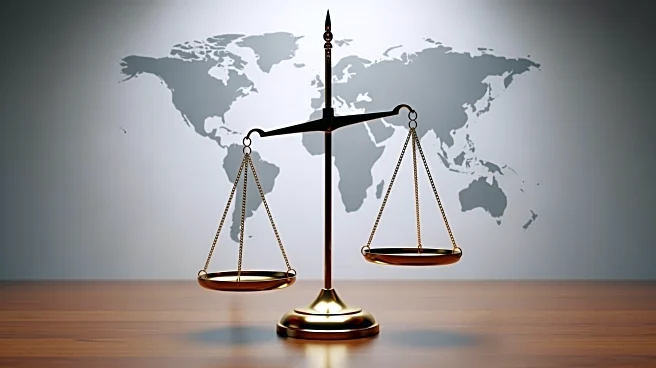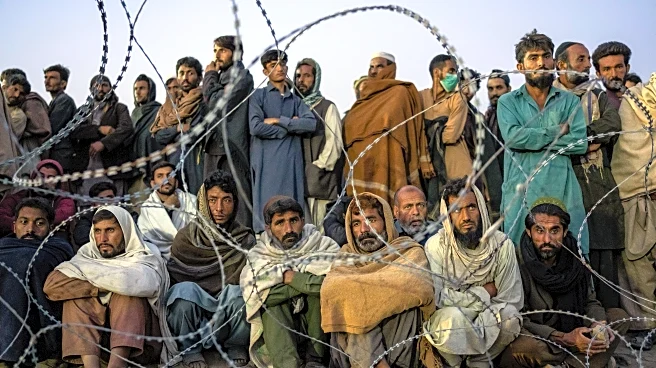What's Happening?
A Polish court has blocked the extradition of Volodymyr Zhuravlov, a Ukrainian man suspected of involvement in the 2022 Nord Stream pipeline attack, to Germany. Zhuravlov was arrested in Poland on a German warrant, accused of being part of a group that
placed explosives on the pipelines. The court ruled that the attack should be considered a military action in a 'just war,' exempting Zhuravlov from criminal responsibility. Poland's Prime Minister Donald Tusk welcomed the decision, citing Poland's opposition to the pipelines.
Why It's Important?
The court's decision is significant as it reflects Poland's stance on the Nord Stream pipelines and its broader geopolitical implications. The ruling highlights the legal complexities surrounding actions deemed as military operations in international conflicts. Poland's opposition to the pipelines aligns with its anti-Russian policies, impacting regional energy security and diplomatic relations. The case also underscores the tensions between European countries over energy dependencies and geopolitical strategies.
What's Next?
The decision may influence ongoing legal proceedings in Germany and Italy, where extradition of other suspects is being contested. The ruling could affect Poland's diplomatic relations with Germany and its position within the European Union. The broader implications for regional energy security and geopolitical dynamics will continue to unfold as countries navigate the complexities of energy dependencies and international law.
Beyond the Headlines
The ethical and legal dimensions of the court's ruling raise questions about the definition of military actions and their exemption from criminal responsibility. The geopolitical implications extend beyond the immediate case, influencing regional energy policies and international relations. The decision reflects broader tensions over energy security and the role of legal frameworks in addressing international conflicts.

















